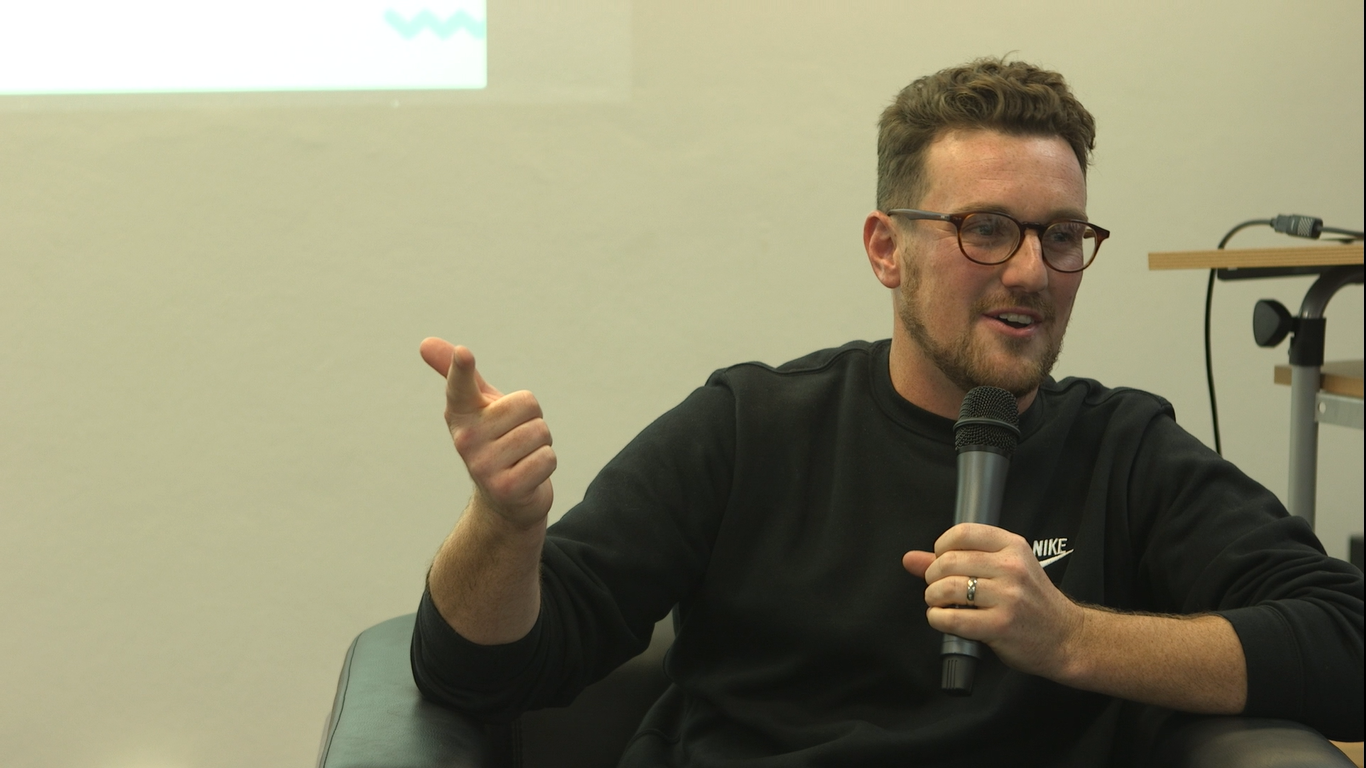Hatch continues its six-part series of Macleay alumni success stories with the Media and Communications Manager at Country Rugby League, Adam Kidd.
Adam Kidd graduated from Macleay College in 2012 with his diploma in Journalism. While studying at Macleay, Kidd picked up an internship with New South Wales Rugby League. He was determined to get the best out of his internship, even after he left college, and eventually it turned into a job.
After a few years working for NSW Rugby League, Kidd was given the opportunity to move to Country Rugby League, where he was tasked with starting and managing their media unit. During his visit to Macleay College, Kidd was adamant about the benefits of an internship and how important it is to make the most of any opportunity.
What does your job at Country Rugby League involve?
Writing, doing interviews, conducting interviews, filming, video editing, taking photos, editing photos, writing media releases, taking calls at 6am from news stations because something’s happened somewhere, doing all of that. My job involves all of those things plus marketing, working with government agencies on sponsorship things as well. Yeah, quite a lot to it, which is mainly a good thing, because I get to learn those things.
As someone who spends a lot of time writing media releases and dealing with the media, what did your time at Macleay teach you about dealing with journalists?
I guess you could say that doing media now, I’m sort of on the opposite side to journalism where I’m maybe having vigorous debates with journalists about the fact that they might not have gotten it quite right. But I guess the overall thing would be knowing what they need and what they want. So if I need to pitch a story, I’ve got journalists I go to for certain types of stories because I know that’s what they’re good at and that’s what they’re asked to do in their jobs. So I know what a good story is and [what] will make the paper and where to send it, and that is really useful.
“Recognise the opportunity. When I started my role there was no media person so I was responsible for everything – marketing, partnerships, sourcing content, editing – you name it, I did it” says @adam_the_kidd on the benefit of being multi-skilled.
— Hatch@Macleay (@HatchMacleay) July 4, 2018
What advice would you give us about getting the most out of our internships?
Advice for the things to do would be the things I mentioned before: being persistent, maybe learning what other people do, being enthusiastic when you get there, maybe offering some of your free time, if you have some – I know not everyone will be able to do that. Some things not to do: I’ve had a lot of interns come through and work with me now and I always love to have them, but I’ve had some bad examples as well, and one of them, I’ve made up a word for it called tech-etiquette, and particularly for some of the younger generations. At my age now, I’ve grown up using technology for everything, but I also remember it when it wasn’t there. There was a time when it didn’t exist.
“I didn’t realise how many transferable skills there were until I needed them,” says @CountryRL media manager @adam_the_kidd about part-time work, internships and college. @MacleayCollege @HatchMacleay
— fiona west (@fiona_west) July 4, 2018
What is one skill you learned at Macleay that has stuck with you while working in the industry?
Every time I go to write something down in an intro in a media release I can hear Bunty – who was one of the lecturers – going “brevity, clarity” in my ear, [and] “keep it simple, stupid”, and I still use that now. Just short, concise, not waffling on in the writing. A skill that’s very good to have, whether you’re video editing or writing articles, is to get out of your own head and read it again. And what I mean by that is, when I’ve edited a video, I’ll sit back and watch it like this is the first time I’ve ever seen it and like I didn’t make it, and I’ll go, “aw, that doesn’t make sense”.
That ability to video edit, photos, writing, whether it will be features, news, that is just so vital when you get into a workplace to have those skills. And even opposed to someone who might just go and do a straight journalism course that’s just writing and things like that, they’re going to come out sometimes and not be able to do that extra stuff, and news places now are looking for people with lots of skills.


